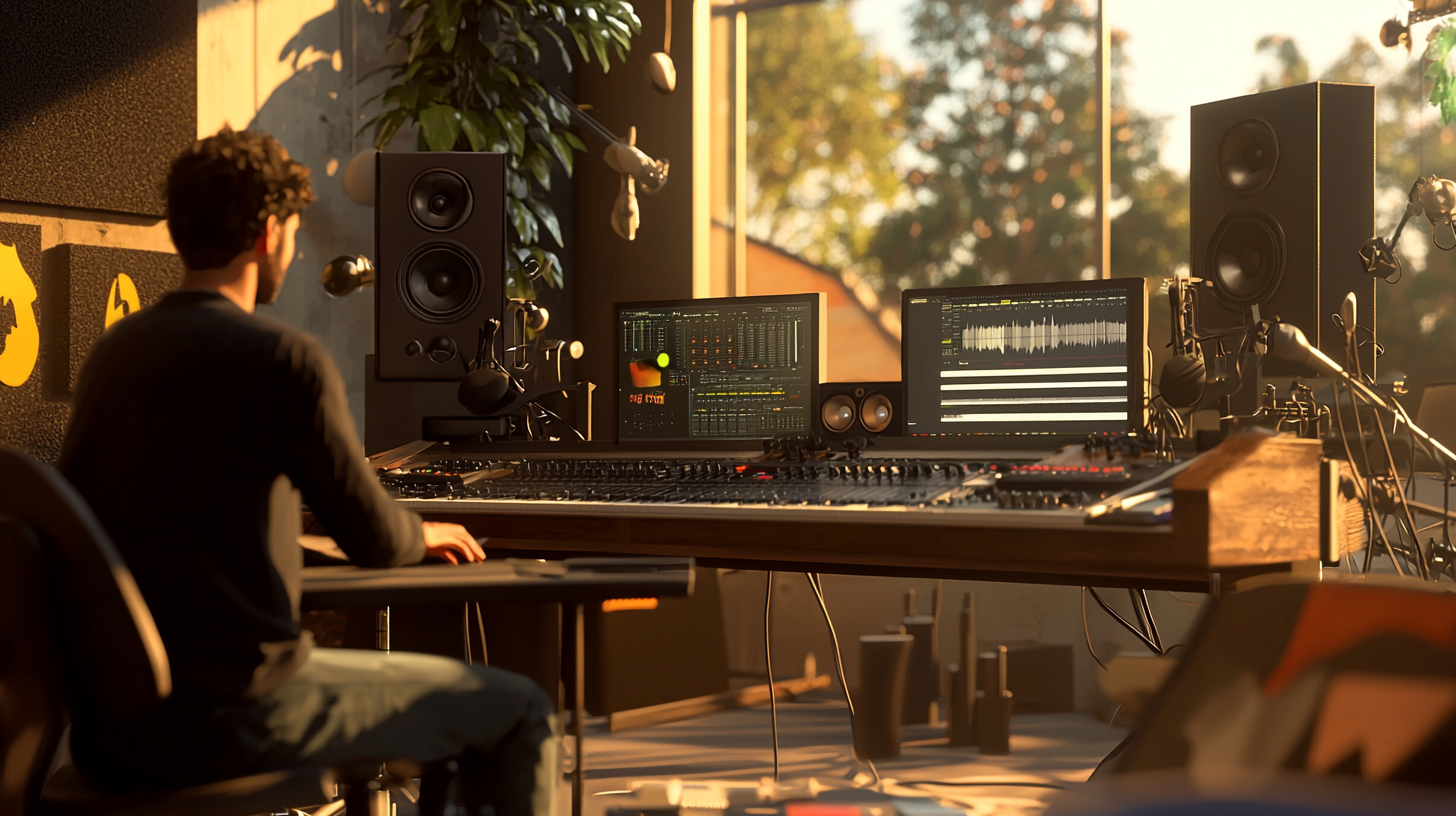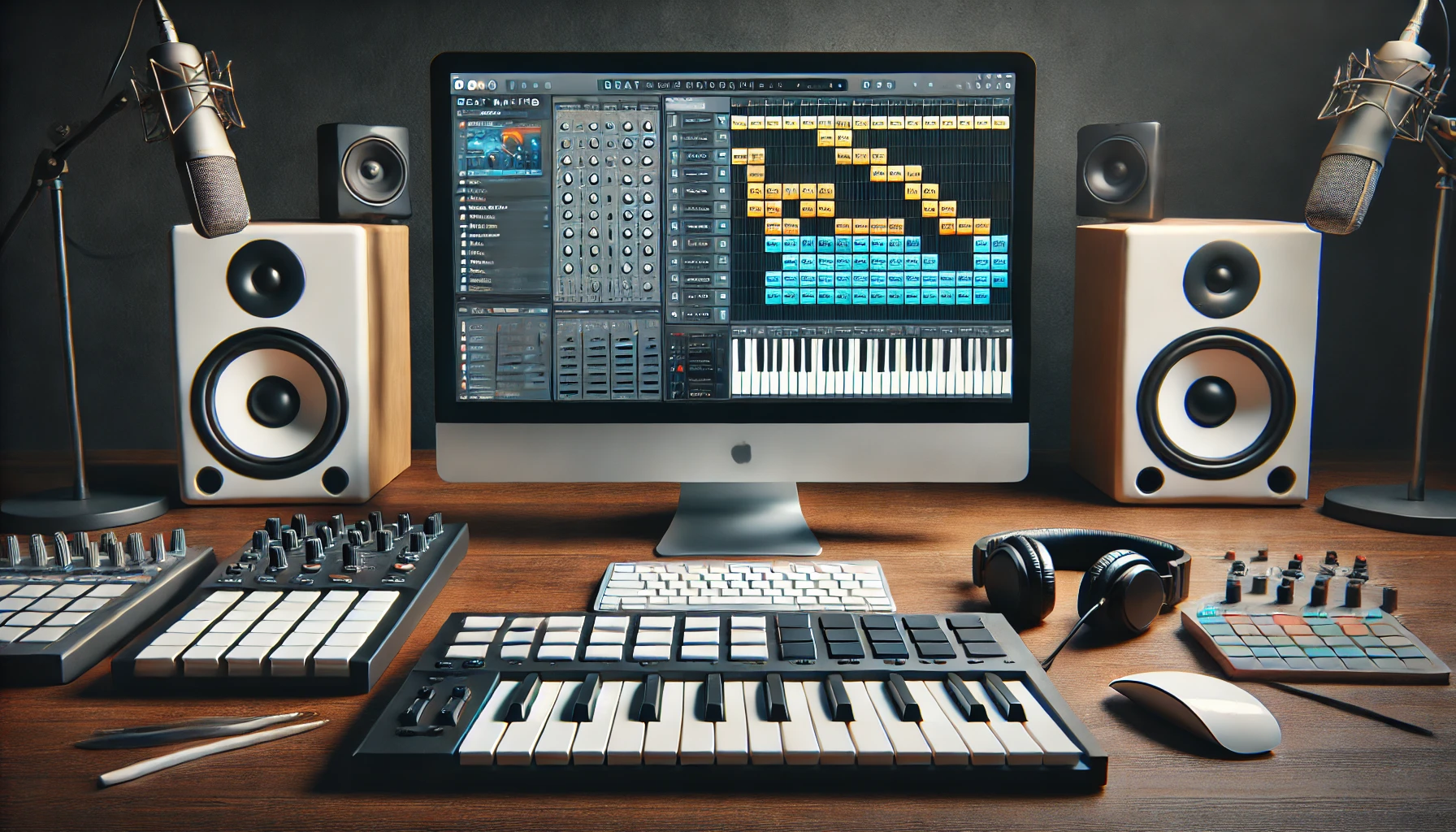How to Improve Your Songwriting Skills: A Comprehensive Guide
Songwriting is both an art and a craft, requiring creativity, practice, and the continuous refinement of techniques. Whether you’re just starting or looking to enhance your existing skills, improving your songwriting is a journey of exploration and learning. The best songwriters consistently develop their skills by experimenting with new ideas, honing their craft, and collaborating with other musicians.
In this guide, we’ll explore effective strategies to improve your songwriting skills, from building better habits to leveraging collaboration and feedback. We’ll also show how Muibas can be a valuable platform to test new ideas, collaborate with other musicians, and refine your songs.
- Write Regularly
Just like any other skill, songwriting improves with practice. The more frequently you write, the more you’ll develop your unique style and voice. Make writing a daily or weekly habit, even if you’re only writing a few lines or melodies at a time.
Tips for Writing Regularly:
- Set a Schedule: Establish a daily or weekly time to write, even if it’s only for 10–15 minutes. Consistent practice leads to gradual improvement.
- Write Without Judgment: Not every song you write will be great, and that’s okay. Allow yourself to write freely without worrying about the end result.
- Capture Ideas on the Go: Use your phone or notebook to jot down ideas, lyrics, or melodies that come to you throughout the day.
Muibas Tip:
Use Muibas to organize your songwriting drafts and ideas. The platform allows you to store multiple variations of a song, experiment with new techniques, and refine your work as you go. You can revisit these drafts later to develop them into full songs.
- Study the Greats
Listening to and analyzing songs from great songwriters is one of the best ways to learn. By studying successful songs, you can discover new techniques, lyrical ideas, and structures that can inform your own songwriting.
How to Study Great Songs:
- Analyze Song Structure: Break down songs into their sections (verse, chorus, bridge) to understand how they flow.
- Pay Attention to Lyrics: Look at how the songwriter uses metaphors, rhyme schemes, and storytelling to convey emotion and connect with listeners.
- Focus on Melody: Dissect the melody to see how it interacts with the chords and lyrics. Study how repetition and variation are used to create hooks.
Example:
Study classic hits like „Imagine“ by John Lennon or „Bohemian Rhapsody“ by Queen to understand how strong melodies and storytelling come together in iconic songs.
- Experiment with Different Song Structures
Sticking to the same song structure can make your songwriting predictable. Experimenting with different forms allows you to break out of creative ruts and find new ways to express your ideas.
Popular Song Structures to Explore:
- Verse-Chorus: The classic structure used in most pop, rock, and country songs. It alternates between verses that tell the story and a catchy chorus.
- AABA: Popular in jazz and early pop music, this structure consists of two similar verses (A), a bridge (B), and a return to the verse (A).
- Through-Composed: A less common structure where no section repeats, often used in classical or experimental music.
Tip: Try writing a song using a structure you’ve never used before. Even if you return to more familiar formats, experimenting with different structures can spark fresh ideas.
- Expand Your Knowledge of Music Theory
While not all songwriters rely heavily on music theory, having a basic understanding can open up new possibilities for your songwriting. Learning about chord progressions, scales, and harmony will help you write more interesting and complex music.
Key Areas of Music Theory:
- Chord Progressions: Experiment with different progressions beyond the typical I-IV-V to add variety to your songs.
- Melody and Harmony: Understanding how to harmonize melodies with chords can add depth and richness to your songs.
- Rhythm and Meter: Explore how changing time signatures or adding syncopation can make your songs more dynamic.
Tip: Learn the basics of music theory online or through a class. If you already have some knowledge, dive deeper into advanced topics like counterpoint, modal interchange, or songwriting modes.
- Collaborate with Other Songwriters
Collaboration is one of the most effective ways to improve your songwriting. Working with other musicians brings fresh ideas to the table, challenges your creativity, and helps you grow as a writer.
Benefits of Collaboration:
- New Perspectives: Collaborators bring different strengths and ideas, allowing you to see your work from new angles.
- Learning Opportunities: By collaborating with more experienced songwriters, you can learn new techniques and approaches.
- Accountability: Collaborating with others keeps you motivated and ensures that you continue writing, even when you hit a creative block.
Muibas Tip:
Use Muibas to connect with other songwriters and musicians. You can collaborate on projects in real time, share ideas, and get feedback to improve your songs. The platform allows for seamless collaboration, whether you’re working on lyrics, melodies, or production.
- Seek Feedback and Revise
Songwriting is often a process of revision. The first draft of a song might be rough, but getting feedback and refining your work can transform it into something great.
How to Get Effective Feedback:
- Share Your Work: Play your songs for other musicians, producers, or trusted friends who can provide constructive criticism.
- Be Open to Critique: Don’t take feedback personally. Use it as an opportunity to improve and explore new ideas.
- Revise and Edit: Based on feedback, revise your lyrics, melody, or structure. Don’t be afraid to rewrite sections of the song if they don’t feel right.
Tip: Use feedback as a way to refine your songwriting rather than feeling discouraged by criticism.
- Push Beyond Your Comfort Zone
To improve your songwriting, it’s essential to push beyond your comfort zone. This could mean writing in a new genre, collaborating with musicians from different backgrounds, or using a new instrument. The more you challenge yourself, the more your skills will develop.
Ways to Step Outside Your Comfort Zone:
- Try a New Genre: Write a song in a style you’ve never tried before, such as jazz, hip-hop, or country.
- Use a Different Instrument: If you usually write on guitar, try writing with a keyboard, drum machine, or another instrument to inspire new ideas.
- Write About Unfamiliar Topics: Challenge yourself to write songs about topics you wouldn’t normally explore, whether they’re personal, political, or abstract.
Example: Taylor Swift’s transition from country to pop with her album 1989 is an example of how pushing into a new genre can lead to growth and success.
- Refine Your Lyrics with Writing Exercises
Improving your lyrics takes practice and creativity. Writing exercises can help you get better at wordplay, metaphors, and storytelling. These exercises force you to think differently and find new ways to express your ideas.
Lyric Writing Exercises:
- Freewriting: Set a timer and write non-stop for 10-15 minutes. Don’t worry about coherence—just get your thoughts on paper. Review it afterward to find phrases or ideas for lyrics.
- Object Writing: Choose an everyday object and write about it for 10 minutes, focusing on sensory details (sight, sound, touch, taste, smell). This exercise helps improve descriptive lyric writing.
- Rhyming Exercises: Challenge yourself to write a song where each line rhymes. This will help you think more critically about word choice and structure.
Conclusion: Use Muibas to Enhance Your Songwriting Journey
Improving your songwriting skills requires practice, study, and collaboration. By writing regularly, studying great songs, experimenting with new techniques, and seeking feedback, you’ll develop your voice as a songwriter and create more compelling music. Platforms like Muibas provide the ideal space to refine your work, collaborate with others, and explore new ideas, helping you grow and succeed in your songwriting journey. With dedication and an open mind, you can continually improve your skills and write songs that resonate with audiences.


